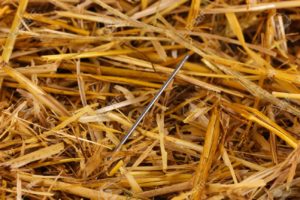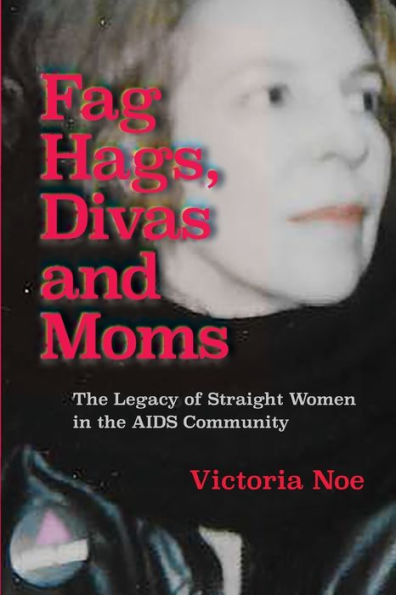Indie Authors, Libraries and Discoverability
Oct 05, 2016 by Victoria Noe, in Indie Author Day
, Indie authors
, Library Journal
, self-publishing
, writing
[caption id="attachment_1547" align="alignleft" width="201"] 123rf.com[/caption]
123rf.com[/caption]
What’s the hardest part of being an author?
Some people will say it’s the writing itself. Others insist it’s the editing process. But most will agree that the hardest part is figuring out how to be discovered by eager readers.
The challenge – no matter how they publish – is for their book to rise above the ever-increasing numbers of titles published each year. For those of us who are indie authors, it is daunting.
Bowker, the company that issues ISBN numbers to authors in the US, just released their report on 2015. Last year 625,327 indie titles were issued ISBN numbers in the US. That’s over 1,700 each and every day, weekends and holidays included.
Now consider the fact that not all books have an ISBN number (though mine do and I recommend that every author make it a priority). That means that 625,327 is not the real total for indie titles. And just to make things worse, that number doesn’t include books that are traditionally published.
So, how to get noticed? How to rise to the top or even just a spot where people can see you? How do you find a way to be discovered by the readers who would most enjoy your books?
This weekend, there is an exciting opportunity for indie authors. It’s Library Journal’s first Indie Author Day. Almost 300 public libraries across the US and Canada are participating in this inaugural event, to highlight the talents of local indie authors.
Libraries and authors are natural allies, though the relationship between libraries and indie authors is problematic. It’s extremely difficult for indie authors to get their books into public libraries that purchase their collections based on reviews and publisher marketing campaigns. Their staffs are too stretched already to spend time meeting with every indie author in their community, much less those who live somewhere else.
And frankly, too many people have given indie authors a bad name. They’ve been aggressive, unprofessional and selfish in their dealings rather than concentrating on building relationships. So, again, how to get noticed?
Here are some ideas:
SELF-e. Submit your ebook to Library Journal’s SELF-e program. It will be considered for your state collection as well as the National Select collection (Full disclosure: the first four books in my series are in the Illinois and National collections, and I’m a SELF-e Ambassador). You don’t get paid for this, but it’s a great way to get your name into the library systems that have signed on to SELF-e and carries the Library Journal ‘seal of approval’. Then you can approach those libraries about purchasing print copies.
Indie Author Day. Check here to find out if your library is participating. Regardless, there’s a livestream panel discussion you won’t want to miss. Keep track of this after Saturday, when the follow-up articles begin to post. If your library didn’t participate this year, these articles may convince them to at least consider joining in 2017.
You. Yeah, you. Do you and/or your family make use of your local library? There’s a lot of power in that. When I walked into my library to discuss the details for our Saturday panel discussion, the librarian looked up and said, “It’s you! You’re a patron!” I already have a relationship with the library. I’m not just there to promote myself, though they now know that I’m not a shy author (libraries are always looking for interesting programming offered by engaging speakers). I use the collection for my research. I seek out new books. I pay my share of overdue book fines. And there’s an ice cream shop across the street, but I consider that a bonus.
So, as you can see, there are a few painless (and free) ways to tackle the challenge of discoverability by leveraging the power of libraries. It’s not easy, even for those with the theoretical backing of traditional publishing houses. But if you approach it with relationship-building in mind, you will find yourself being sought out by readers and librarians alike.
 123rf.com[/caption]
123rf.com[/caption]What’s the hardest part of being an author?
Some people will say it’s the writing itself. Others insist it’s the editing process. But most will agree that the hardest part is figuring out how to be discovered by eager readers.
The challenge – no matter how they publish – is for their book to rise above the ever-increasing numbers of titles published each year. For those of us who are indie authors, it is daunting.
Bowker, the company that issues ISBN numbers to authors in the US, just released their report on 2015. Last year 625,327 indie titles were issued ISBN numbers in the US. That’s over 1,700 each and every day, weekends and holidays included.
Now consider the fact that not all books have an ISBN number (though mine do and I recommend that every author make it a priority). That means that 625,327 is not the real total for indie titles. And just to make things worse, that number doesn’t include books that are traditionally published.
So, how to get noticed? How to rise to the top or even just a spot where people can see you? How do you find a way to be discovered by the readers who would most enjoy your books?
This weekend, there is an exciting opportunity for indie authors. It’s Library Journal’s first Indie Author Day. Almost 300 public libraries across the US and Canada are participating in this inaugural event, to highlight the talents of local indie authors.
Libraries and authors are natural allies, though the relationship between libraries and indie authors is problematic. It’s extremely difficult for indie authors to get their books into public libraries that purchase their collections based on reviews and publisher marketing campaigns. Their staffs are too stretched already to spend time meeting with every indie author in their community, much less those who live somewhere else.
And frankly, too many people have given indie authors a bad name. They’ve been aggressive, unprofessional and selfish in their dealings rather than concentrating on building relationships. So, again, how to get noticed?
Here are some ideas:
SELF-e. Submit your ebook to Library Journal’s SELF-e program. It will be considered for your state collection as well as the National Select collection (Full disclosure: the first four books in my series are in the Illinois and National collections, and I’m a SELF-e Ambassador). You don’t get paid for this, but it’s a great way to get your name into the library systems that have signed on to SELF-e and carries the Library Journal ‘seal of approval’. Then you can approach those libraries about purchasing print copies.
Indie Author Day. Check here to find out if your library is participating. Regardless, there’s a livestream panel discussion you won’t want to miss. Keep track of this after Saturday, when the follow-up articles begin to post. If your library didn’t participate this year, these articles may convince them to at least consider joining in 2017.
You. Yeah, you. Do you and/or your family make use of your local library? There’s a lot of power in that. When I walked into my library to discuss the details for our Saturday panel discussion, the librarian looked up and said, “It’s you! You’re a patron!” I already have a relationship with the library. I’m not just there to promote myself, though they now know that I’m not a shy author (libraries are always looking for interesting programming offered by engaging speakers). I use the collection for my research. I seek out new books. I pay my share of overdue book fines. And there’s an ice cream shop across the street, but I consider that a bonus.
So, as you can see, there are a few painless (and free) ways to tackle the challenge of discoverability by leveraging the power of libraries. It’s not easy, even for those with the theoretical backing of traditional publishing houses. But if you approach it with relationship-building in mind, you will find yourself being sought out by readers and librarians alike.

